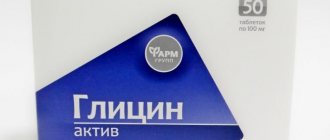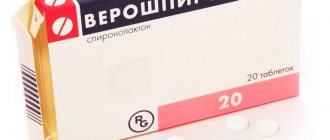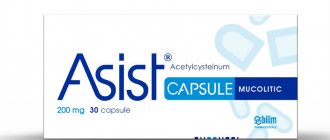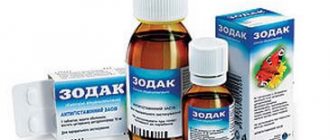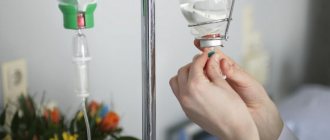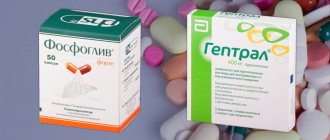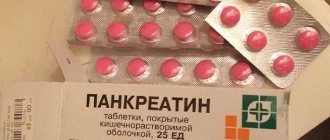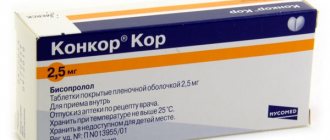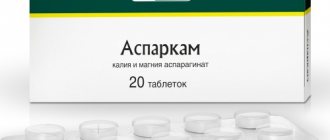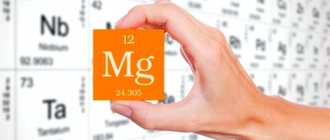Category: Published 05/12/2016 · Comments: · Reading time: 4 min · Views: 2,130
"Cardiomagnyl", what does this non-steroidal anti-inflammatory drug help with? The drug has antiplatelet, analgesic and antipyretic properties. “Cardiomagnyl” instructions for use recommend taking it for heart disease, as well as for the prevention of thrombosis.
Description and composition
The active ingredients of the drug are acetylsalicylic acid (aspirin) and magnesium hydroxide. Standard dosage tablets contain 75 mg of acetylsalicylic acid and 15.2 mg of magnesium hydroxide. Forte tablets with an increased dosage contain 150 mg and 30.39 mg, respectively. Acetylsalicylic acid in low doses has an antiplatelet effect, magnesium hydroxide has a gastroprotective effect, protects the gastric and intestinal mucosa from the damaging effects of aspirin.
Excipients: talc, polyethylene glycol, cellulose, magnesium stearate, potato starch, corn starch.
What are the benefits of taking medication?
Doctors and patients who have already experienced a beneficial effect after treatment with Cardiomagnyl give preference to the drug for a reason. What positive characteristics does this medication have?
- Perhaps one of the most important qualities of the medicine is its auxiliary effect , which prevents the formation of blood clots after surgical intervention on blood vessels. Since the already weakened body was subjected to the exhausting process of the operation, in the postoperative period a blood clot is the biggest threat of all.
- Cardiomagnyl also helps strengthen the body so that recurrent thrombosis or myocardial infarction does not occur. Usually, after suffering from an illness, doctors prescribe complex therapy; relative to the undoubtedly high-quality foreign drugs, our compatriot Cardiomagnyl is several times cheaper, and you can buy it in almost any pharmacy, and not necessarily with a doctor’s prescription.
- The drug is also effective in cases where the goal is primary prevention , in particular for existing diseases of arterial hypertension, any type of diabetes mellitus, hyperlipidemia, as well as for smoking, obesity and old age.
- You cannot do without the help of Cardiomagnyl even with unstable angina . Unstable angina differs from the usual form of the disease, characterized by painful sensations in the chest and constant discomfort, in that it is a kind of intermediate state between the usual form of the disease and the probable symptomatic manifestation of myocardial infarction.
- Few medicines based on acetylsalicylic acid contain magnesium elements , which can protect the lining of the stomach from the irritating effects of acid. In this regard, the risk of possible subsequent problems with the stomach and intestines is reduced.
Pharmacological group
Cardiomagnyl is a drug with a predominant effect on the blood coagulation system. Pharmacological group – antithrombotic drugs, platelet aggregation inhibitors. Acetylsalicylic acid in Cardiomagnyl has anti-inflammatory, analgesic, antipyretic, and antiaggregation effects. Magnesium hydroxide has a protective effect on the mucous layer of the stomach and intestines, which prevents the occurrence of ulcers with long-term use of Cardiomagnyl.
Pharmacodynamics
In low doses, Cardiomagnyl, first of all, has an antithrombotic effect, which consists of preventing the process of platelet aggregation and preventing pathological thrombus formation. Acetylsalicylic acid inhibits the synthesis of thromboxane A from arachidonic acid in platelets, which leads to prolongation of bleeding time and reduces the rate of blood clot formation in blood vessels. The chemical-biological process has a prolonged effect and continues after discontinuation of the drug until platelets are renewed in the peripheral blood.
Anti-inflammatory, analgesic and antipyretic effects in therapeutic dosages are insignificantly expressed. Acetylsalicylic acid prevents the formation of prostaglandins E2 (inflammatory mediators). This normalizes blood flow in the area of the inflammatory reaction and reduces the activity of the pathological process. Salicylic acid, when used for a long time, has an irritating effect on the mucous membrane of the stomach and intestines, which leads to the formation of ulcers and causes internal bleeding.
To protect the mucous layer of the digestive tract, Cardiomagnyl contains magnesium hydroxide, which is an antacid drug. The drug forms a protective film on the walls of the stomach and duodenum, preventing the appearance of peptic ulcers. Acetylsalicylic acid penetrates the hematoplacental barrier and can have a negative effect on the fetus, especially in the 3rd trimester of pregnancy. The active substance accumulates in breast milk.
Pharmacokinetics
When taken orally, Cardiomagnyl is absorbed in the stomach and intestines. Adsorption of the drug slows down with simultaneous consumption of food. The maximum concentration of acetylsalicylic acid in the blood plasma is observed after 1-2 hours. 20 minutes after administration, the active substance penetrates the mucous layer of the stomach and turns into a metabolite - salicylic acid, which is broken down in the liver. In the blood, salicylic acid is 90% bound to transport proteins. It is excreted primarily by the kidneys.
Magnesium hydroxide is slightly absorbed in the intestine. In blood plasma, it is 30% protein bound. It is excreted mainly unchanged in feces. The half-life of salicylic acid is 2-3 hours; when high therapeutic doses are prescribed, the half-life extends to 18-30 hours.
“Aspirin Cardio” or “Cardiomagnyl”: which is better? "Cardiomagnyl" (tablets)
The drug "Aspirin Cardio" or "Cardiomagnyl": which is better? You will find the answer to this question in the materials of the presented article. In addition, we will tell you in detail about each medication, their properties and methods of use.
general information
Heart remedy “Aspirin Cardio” or “Cardiomagnyl”: which is better for the patient to use? The two named drugs are very often prescribed to patients with cardiovascular diseases. Their fundamental difference is that the drug “Aspirin Cardio” includes in its composition such an active substance as acetylsalicylic acid. As for the drug “Cardiomagnyl”, in addition to the mentioned component, it also contains magnesium hydroxide. Moreover, such medications are available in different dosages. In this regard, doctors very often prescribe one or another drug depending on the required dose.
The drug “Aspirin Cardio” or “Cardiomagnyl”: which is better for a patient to use to prevent strokes and heart attacks? To prevent such deviations, doctors recommend using the first medication. After all, the drug “Cardiomagnyl” is more suitable for maintaining the heart muscle. This is due to the fact that a component such as magnesium is very important for the normal functioning of blood vessels and veins.
In order to understand how these drugs should be taken, for what diseases, etc., it is necessary to consider the properties of these drugs separately.
Medicine "Cardiomagnyl"
The drug "Cardiomagnyl" is a tablet belonging to the group of non-steroids. The effectiveness of this product is due to its composition. Thanks to a component such as acetylsalicylic acid, this drug is able to block platelet aggregation. As for magnesium hydroxide, it not only saturates cells with microelements, but also protects the mucous membranes of the gastrointestinal tract from the effects of aspirin.
The drug "Cardiomagnyl": indications for use
According to the instructions included in the cardboard package with this product, Cardiomagnyl is very often used for the treatment and prevention of vascular thrombosis, recurrent heart attack, and cardiovascular diseases. In addition, it is prescribed to those patients who are at risk (smoking, hyperlipidemia, diabetes, hypertension, obesity and old age).
Why else is the drug “Cardiomagnyl” needed? Indications for the use of this drug include the prevention of thromboembolism after vascular surgery (coronary artery bypass surgery, coronary angioplasty, etc.), as well as unstable angina.
Contraindications to taking Cardiomagnyl
We discussed the indications for using this product above. But before taking this drug, you should definitely familiarize yourself with its contraindications. Thus, the drug “Cardiomagnyl” (tablets) is not recommended for use in patients with bleeding tendencies (for example, hemorrhagic diathesis, thrombocytopenia and vitamin K deficiency), as well as in bronchial asthma, ulcerative and erosive lesions of the gastrointestinal tract, renal failure and G6PD deficiency . In addition, the use of this drug is not possible in the 1st and 3rd trimesters of pregnancy, during breastfeeding and children under 18 years of age.
Methods of administration
This medication should be taken in one dose or another depending on the disease:
- As a prevention of cardiovascular diseases (primary) - 1 tablet (with 150 mg aspirin) on the first day, on subsequent days - ½ tablet (with 75 mg aspirin).
- As a prevention of recurrent heart attack and vascular thrombosis, 1 or ½ tablet (75-150 mg of aspirin) once a day.
- To prevent thromboembolism after vascular surgery - ½ or 1 tablet (75-150 mg of aspirin).
- For unstable angina - half or a whole tablet (with aspirin 75-150 mg) once a day.
Medication "Aspirin Cardio"
The drug "Aspirin Cardio", the price of which varies between 100-140 Russian rubles (for 28 tablets), is a non-steroidal anti-inflammatory drug, an antiplatelet agent and a non-narcotic analgesic. After administration, it has an analgesic and antipyretic effect, and also significantly reduces platelet aggregation.
The active substance of this drug (acetylsalicylic acid) creates irreversible inactivation of the enzyme cyclooxygenase, as a result of which the synthesis of thromboxane, prostacyclins and prostaglandins is disrupted. Due to the decrease in the production of the latter, its pyrogenic effect on the thermoregulation centers decreases. In addition, the drug “Aspirin Cardio” reduces the sensitivity of nerve endings, which ultimately leads to an analgesic effect.
One cannot ignore the fact that, unlike the usual Aspirin, Aspirin Cardio tablets are coated with a protective film coating that is resistant to gastric juice. This fact significantly reduces the frequency of side effects from the gastrointestinal tract.
The drug "Cardio Aspirin": use of the drug
The presented medication is indicated for the following deviations:
- with unstable angina;
- for the prevention of acute infarction, as well as in the presence of a risk factor (for example, diabetes, obesity, old age, hyperlipidemia, smoking and hypertension);
- for the prevention of heart attack (repeated);
- for the prevention of circulatory disorders in the brain;
- for stroke prevention;
- for the prevention of thromboembolism after invasive interventions and vascular operations (for example, after coronary or arteriovenous bypass surgery, endarterectomy or angioplasty of the carotid arteries);
- for the prevention of pulmonary embolism and deep vein thrombosis.
Dosage and instructions for use
Aspirin Cardio should only be taken orally. Its dosage depends on the disease:
- As a prophylaxis for acute heart attack - 100-200 mg every day or 300 mg every other day. For rapid absorption, it is recommended to chew the first tablet.
- As a treatment for a new heart attack, as well as in the presence of a risk factor - 100 mg per day or 300 mg every other day.
- As a prevention of heart attack (repeated), stroke, circulatory disorders in the brain, unstable angina and treatment of thromboembolic complications after vascular surgery - 100-300 mg daily.
- As a prophylaxis for pulmonary embolism and deep vein thrombosis - 300 mg every other day or 100-200 mg daily.
Contraindications to taking the medication
This drug is not recommended for use in the following pathologies:
- bronchial asthma;
- hemorrhagic diathesis;
- liver failure;
- enlarged thyroid gland;
- when taken simultaneously with Methotrexate;
- 1st and 3rd trimesters of pregnancy;
- arterial hypertension;
- severe heart failure;
- angina pectoris;
- renal failure;
- lactation period;
- hypersensitivity to acetylsalicylic acid.
It should also be noted that the presented medication should not be taken by children under 15 years of age with respiratory diseases caused by viral infections. This is due to the fact that there is a risk of the child developing Reye's syndrome.
Let's sum it up
The drug "Aspirin Cardio" or "Cardiomagnyl": which is better to buy? Now you know the answer to the question posed. It should be especially noted that the drug "Cardiomagnyl", the price of which is approximately 100 Russian rubles for 30 tablets, and the drug "Aspirin Cardio" are intended only for long-term use. However, the duration of therapy with these drugs should only be determined by the treating doctor on an individual basis. It is recommended to take such medications strictly before meals, with plenty of warm water.
fb.ru>
Indications for use
For adults
Cardiomagnyl is prescribed to patients for the treatment and prevention of diseases of the cardiovascular system with a tendency to form blood clots in blood vessels.
- Acute coronary heart disease (unstable angina, pre-infarction condition, myocardial infarction).
- Chronic ischemic heart disease (post-infarction cardiosclerosis).
- Prevention of repeated pathological thrombus formation in the arteries.
- Primary prevention of thrombosis and the occurrence of cardiovascular diseases in patients with risk factors.
Risk factors include an unfavorable family history (cases of myocardial infarction in close relatives under 50 years of age), hypertension, obesity, cholesterol metabolism disorders, and diabetes mellitus.
For children
Cardiomagnyl is not prescribed for children.
For pregnant women and during lactation
During gestation, Cardiomagnyl is not prescribed in the 3rd trimester of pregnancy due to toxic effects on the fetus and the development of severe damage to the heart or kidneys. The drug penetrates the hematoplacental barrier, but does not have a teratogenic effect. The drug is approved for treatment of women in the 1st and 2nd trimester in short courses in low therapeutic doses according to strict indications.
During lactation it is not recommended to take Cardiomagnyl. The drug passes into breast milk and can cause poisoning to the baby. The prescription of a drug during lactation and weaning a newborn from the breast is decided on a case-by-case basis by a doctor, taking into account the appropriateness of therapy.
"Cardiomagnyl": contraindications, indications, application
The drug "Cardiomagnyl" belongs to the group of pharmacological agents with a pronounced antiplatelet effect. It contains acetylsalicylic acid as an active ingredient. This substance has been used in clinical practice for more than 130 years and has proven its effectiveness. Due to the increasing number of pathologies of the heart and blood vessels in general morbidity and mortality, international organizations of cardiologists (European Society of Cardiology and the more conservative American Heart Association) recommend the use of cardio forms of acetylsalicylic acid as effective preventive drugs.
The importance of their use is due to a significant reduction in the number of myocardial and cerebral infarctions in the presence of atherosclerotic lesions of arterial vessels. The use of Cardiomagnyl for varicose veins of the legs is similarly justified. This reduces the likelihood of thrombosis of the branches of the pulmonary artery and pelvis. Therefore, any of the cardio forms of aspirin has many more positive aspects of use than side effects.
System characteristics
The instructions for use of the drug "Cardiomagnyl" list contraindications in as much detail as possible. This is a modern and high-quality medicine that is truly necessary in clinical practice. It is affordable and should be used continuously if the patient's health condition allows it.
Acetylsalicylic acid is used as the active ingredient. The potent antiplatelet effect, which prevents platelet aggregation and initiation of thrombus formation, is an important mechanism in the prevention of acute coronary events. At the same time, the contraindications of the drug “Cardiomagnyl” due to the use of an enteric film coating and a cytoprotector have significantly changed downward compared to the earlier, gastrosoluble cardio forms of ASA.
Indications for use
The contraindications of the drug "Cardiomagnyl" due to the enteric form are less significant, although this does not affect the number of indications. It, like gastrosoluble cardioforms, is used in the following clinical situations:
- in acute myocardial infarction at the stage of cardiac ST segment elevation and without it;
- for unstable angina for emergency care and long-term treatment;
- for ischemic stroke in acute and subsequent periods, as well as for long-term therapy;
- for transient ischemic attacks for long-term treatment;
- for the prevention of myocardial infarction, when the patient is concerned about progressive angina;
- in the prevention of ischemic stroke against the background of transient ischemic attacks;
- with venous varicose veins of the pelvis and lower extremities;
- for the prevention of shunt thrombosis after CABG (MCBG), BPS;
- in the presence of arterial hypertension in patients with an already high cardiovascular risk.
The latter indication requires the prescription of the drug "Cardiomagnyl", the contraindications of which are less important than the therapeutic effects. Since in any of the clinical situations described above, the drug provides more benefit than potential or actual harm, it is considered relatively safe and is recommended if there are risks of developing cerebral infarction, myocardial infarction, or thrombosis of the pulmonary artery and bypass vessels.
Contraindications
Despite the presence of a progressive enteric form of the drug "Cardiomagnyl", the drug still has contraindications. They cover conditions in which the use of acetylsalicylic acid causes more harm than practical benefit. In such clinical situations, "Cardiomagnyl" can be replaced by a class analogue - the drug "Clopidogrel". The contraindications are as follows:
- bleeding disorders (hemophilia, hemorrhagic diathesis, thrombopenia);
- organic diseases of the stomach (erosions, acute ulcers of the duodenum, acute gastric ulcers, any bleeding from parts of the digestive tract);
- pregnancy in the first and third trimesters;
- lactation status;
- severe liver failure with creatinine clearance less than 30 ml/min.;
- renal failure (in this case, for the drug “Cardiomagnyl”, indications and contraindications are determined individually);
- allergic reactions to any salicylates;
- bronchial asthma at any clinical stage and degree of manifestation;
- treatment with methotrexate;
- age up to 18 years.
Side effects and major combined effects
It is natural that virtually any drug has both therapeutic and side effects. The same characteristic applies to the product “Cardiomagnyl”. Contraindications, side effects and features of its use should become the determining criteria when prescribing a medicine to a patient. The most serious negative effect is the disruption of the proliferation of gastric and intestinal epithelial cells with an increased risk of developing erosions of the mucous membranes and ulcers with subsequent bleeding from the upper gastrointestinal tract.
The likelihood of damage to the stomach and intestines increases when used simultaneously with the drug Methotrexate and other cytostatics. All other NSAIDs enhance the effects of the medication in question and are not recommended for use together with it.
The drug "Cardiomagnyl", the use and contraindications of which are interrelated, can aggravate liver dysfunction if the patient drinks alcohol during treatment. It is also possible to develop an allergy to salicylates. Frequent side effects are bronchospasm, increased bleeding, headache, and insomnia. Rare manifestations include tinnitus, dizziness, and drowsiness. There is a risk of drug poisoning only in the case of a single consumption of 60 or more 75 mg tablets.
Dosage form
The drug "Cardiomagnyl" (contraindications and side effects are discussed above) belongs to modern conditionally safe drugs due to the presence of an enteric coating. It is also present in most other similar medications, since it is a recognized pharmacological standard for a dosage form that is aggressive towards the stomach. The product is available in heart-shaped tablets.
Composition and dosage
The drug is available in two standard dosages of 75 and 150 mg. They are prescribed depending on dose tolerance and clinical condition. The most commonly used dose is 75 mg. It is recommended for a single dose after dinner according to the indications described above.
The tablet contains acetylsalicylic acid 75 mg, magnesium hydroxide - 15.2 mg. In addition, the composition contains excipients: magnesium stearate - 150 mcg, microcrystalline cellulose - 12.5 mg, corn starch - 9.5 mg, potato starch - 2.0 mg.
All important points regarding taking the drug "Cardiomagnyl" (contraindications, duration of use, identifying side effects and combating them) should be learned from your doctor. A cardiologist or therapist is responsible for prescribing the dose and monitoring therapy.
Reviews from experts about the drug
It is important to indicate a set of statistical data confirming the appropriateness of the use of the drug. So, all cardio forms, including gastrointestinal forms, reduce mortality by 16% among patients with already high cardiovascular risk. Acetylsalicylic acid reduces the likelihood of pulmonary embolism and ischemic stroke by a quarter.
Also, Cardiomagnyl will reduce the risk of clinically significant thrombosis of the veins of the pelvis and lower extremities in the presence of varicose veins by 29%. The most important thing is the proven reduction in the likelihood of developing myocardial infarction in the presence of any form of chronic cardiac ischemia. All of these effects make it possible to increase the life expectancy of any patient at risk of developing a cerebral or cardiac infarction. Also, cardio forms of acetylsalicylic acid will reduce the likelihood of shunt thrombosis during any revascularization operation by 40%.
Overview of patients' opinions
Patient reviews of a drug are often not indicative, because there is no quick way to determine the effectiveness of a given drug. Therefore, a person who is prescribed Cardiomagnyl should rely on the doctor’s recommendations. This is a relatively safe drug, with proper use of which side effects are minimized. However, a cumulative analysis of patient reviews proves that Cardiomagnyl is much better tolerated than any of the gastrosoluble cardio forms.
Features of application
Considering the reviews that characterize Cardiomagnyl, contraindications and the breadth of therapeutic action, the doctor will recommend a dosage for treatment. More often, according to the recommendations of ESC 2014 and AHA 2014, a dose of 75 mg is used. 150 mg of acetylsalicylic acid is recommended for patients with heavy weight and wide (extended stenoses) of the coronary arteries.
The drug should be used continuously and, if the clinical situation requires, discontinued gradually due to the likelihood of acute thrombosis in the first ten days of discontinuation. According to the results of numerous studies of the pharmacokinetics and pharmacodynamics of acid, the safest is considered to be taken after dinner, approximately 1.5 hours before bedtime.
fb.ru>
Contraindications
Contraindications to the use of the drug.
- Individual intolerance to the components of the drug.
- History of allergic reactions to NSAIDs.
- Severe cardiovascular failure.
- Severe renal failure.
- Severe liver failure.
- Tendency to bleeding (hemophilia, hemorrhagic diathesis, hypovitaminosis K).
- Childhood.
- Pregnancy 3rd trimester.
- Lactation period.
Cardiomagnyl is prescribed with caution in old age (after 70 years) due to the high risk of ulcerative lesions of the gastric tract and the development of bleeding. For gout, the drug is used in minimal therapeutic dosages under the control of the level of uric acid in the blood.
Cardiomagnyl - contraindications
Anyone who suffers from acute heart failure or is predisposed to venous thrombosis takes Cardiomagnyl. This is a fairly serious drug that requires a doctor's prescription. Read the instructions before buying Cardiomagnyl, because the medicine also has contraindications for use.
Indications for use of Cardiomagnyl
The drug can be prescribed for:
- hypertension;
- diabetes mellitus;
- increased lipid levels;
- elderly people who suffer from unstable angina;
- after vascular surgery;
- after a heart attack.
Even smokers are at risk and can receive such a doctor's prescription.
It is Cardiomagnyl, whose contraindications and side effects are quite wide, which nevertheless helps to stabilize the patient’s condition, because it contains aspirin, which is coated with a special coating of magnesium hydroxide. Magnesium hydroxide protects the stomach from acid attack and helps prevent ulcers or gastritis.
When is a doctor's supervision necessary?
However, acid is not as harmless as it seems. Although it thins the blood, relieves inflammation and even fever, it can have a lot of side effects.
Not only heartburn, but vomiting, nausea, and colic in the abdominal area can bother the patient who is prescribed the drug. Ulcers of the stomach and duodenum may occur. And someone who already has an ulcer may experience stomach bleeding. To this you can add irritable bowel syndrome, and even stomatitis, because everyone’s sensitivity to constant use of aspirin is different.
Side effects from Cardiomagnyl can lead to:
- Quincke's edema;
- anaphylactic shock;
- hives.
Carefully monitor your health and try to immediately consult a doctor if problems arise.
The drug also sometimes has a negative effect on the central nervous system. Appears:
- drowsiness or, conversely, insomnia;
- noise in ears;
- dizziness;
- headache.
Therefore, older people need to take the drug with caution so as not to worsen their condition further. Constant monitoring of your well-being is necessary, and you should not exceed the dosage prescribed by your doctor.
Bronchospasm may occur, and from the circulatory system, the side effects of Cardiomagnyl will be bleeding, up to anemia, and other changes that only a doctor can identify. Therefore, taking this drug is necessary under constant medical supervision and monitoring of blood tests.
When should you not take Cardiomagnyl?
Cardiomagnyl has the following contraindications for use:
- history of gastrointestinal hemorrhage and bleeding;
- bleeding tendency and hemophilia;
- erosions and ulcers of the stomach and intestines;
- pregnancy and breastfeeding;
- age under 18 years;
- susceptibility to acetylsalicylic acid and its intolerance.
In addition, the drug is taken with caution in case of renal failure. When buying Cardiomagnyl in tablets, it is better to read the contraindications right away, because although the drug is inexpensive, it may not be suitable if you have the problems listed above.
Please note that you should not take it for
prevention, be sure to consult with specialists. You can always find out what indications and contraindications Cardiomagnyl has from the annotation, so don’t be lazy to read the instructions before purchasing.
Any medicine not only treats, but can also have side effects, so do not be afraid to take it if prescribed by a doctor. He usually relies on anamnesis and prescribes the drug strictly according to the specifics of the disease. Most importantly, do not forget to tell your doctor about side effects after taking the medicine if they suddenly appear. In this case, or if you have contraindications to taking Cardiomagnyl, the doctor will select another medicine.
WomanAdvice.ru>
Application and dosage
For adults
For coronary heart disease (CHD), the drug is prescribed at an initial dose of 150 mg per day, then the dosage is reduced to 75 mg per day.
In the acute phase of myocardial infarction and unstable angina, the drug should be taken immediately after the heart attack at a dose of 150-450 mg per day. Gradually the dosage is reduced to 100 mg per day.
For secondary prevention of thrombosis, 150 mg per day is prescribed, then switched to a maintenance dosage of 75 mg per day. For primary prevention of cardiovascular diseases, the standard dosage is 75 mg per day.
I take the drug in the morning after meals, in crushed form or without chewing the tablet, with a sufficient amount of water.
For children
The drug is not prescribed for children.
For pregnant women and during lactation
The prescription of a drug in the 3rd trimester of pregnancy and during breastfeeding must be weighed against the therapeutic need and potential harm to the health of the woman and child. If therapy is necessary, minimum standard dosages are used.
How to take Cardiomagnyl?
Cardiomagnyl
is a medicine in tablet form that belongs to the group of non-steroidal anti-inflammatory drugs and antiplatelet agents.
Let's look at what Cardiomagnyl is taken for and how to take it correctly for treatment and prevention. Composition and pharmacological action of Cardiomagnyl
The main active ingredient of the drug is acetylsalicylic acid. This component, acting on certain enzymes in the body, reduces the ability of platelets to stick together (aggregate) and prevents thrombosis. Acetylsalicylic acid also normalizes elevated body temperature, has an analgesic effect and suppresses inflammatory reactions.
The second component of Cardiomagnyl is magnesium hydroxide. This substance is an antacid and laxative and is added to the drug to neutralize the irritating effect of acetylsalicylic acid on the gastric mucosa. Magnesium hydroxide interacts with gastric juice and hydrochloric acid, and also covers the walls of the stomach with a protective film. It also helps to increase peristalsis in all parts of the intestine.
The action of these two components occurs in parallel; they do not affect each other’s effectiveness. The excipients of the drug include: corn and potato starch, cellulose, magnesium stearate, hypromellose, macrogol, talc.
Indications for use of Cardiomagnyl:
- prevention of thrombosis and acute heart failure in the presence of risk factors (old age, hyperlipidemia, diabetes mellitus, hypertension, obesity);
- prevention of recurrent myocardial infarction and blood vessel thrombosis;
- ischemic form of stroke;
- deterioration of blood supply to the brain and prevention of thrombosis after surgical interventions for coronary artery bypass grafting and coronary angioplasty;
- unstable angina.
How and when to take Cardiomagnyl?
Cardiomagnyl can be taken only as prescribed by a doctor and after he has developed an individual regimen for taking the drug. As a rule, the drug is taken once a day, one tablet containing acetylsalicylic acid in an amount of 75 or 150 mg.
It is recommended to take the tablets after meals as a whole, with plenty of clean water. If necessary, the tablet can be broken into two parts, chewed or pre-grown.
It does not really matter when to take Cardiomagnyl - in the morning or in the evening. However, in most cases, doctors recommend taking these tablets in the evening. This is due to the fact that heart problems often begin in the evening, as well as some side effects of the drug. In particular, acetylsalicylic acid causes increased sweating, which is undesirable during the day, especially at work.
How long can you take Cardiomagnyl?
As a rule, the drug is taken for a long time and even for life. However, side effects and contraindications are taken into account; blood clotting and blood pressure should be periodically monitored. In some cases, it is recommended to take a break from the course of treatment. The question of whether Cardiomagnyl can be taken continuously can only be answered by the attending physician, depending on individual factors.
Cardiomagnyl - contraindications:
- bleeding in the brain;
- tendency to bleed;
- erosions and ulcers of the gastrointestinal tract (in the acute phase);
- severe forms of renal failure;
- I and III trimesters of pregnancy;
- lactation period;
- bronchial asthma induced by taking non-steroidal anti-inflammatory drugs and salicylates;
- individual intolerance.
WomanAdvice.ru>
Side effects
Side effects develop in the first days of treatment with the drug and usually go away on their own.
- Headache, dizziness.
- Sleep disturbance.
- Decreased hearing acuity.
- Nausea, vomiting.
- Diarrhea.
- Gastric, nasal, uterine bleeding.
- Bleeding gums.
- Hives,
- Anaphylactic reactions.
Thrombocytopenia, anemia, eosinophilia, and increased concentrations of liver transaminases are detected in the blood. If side effects progress, the drug should be discontinued and consult a specialist.
Video: clear instructions about Cardiomagnyl
Article rating:
( 1 ratings, average: 1.00 out of 5)
Share with friends:
You may also be interested in:
Aminazine poisoning - symptoms of acute overdose
Antibiotic poisoning (overdose) - what to do, symptoms and consequences
Formaldehyde poisoning (vapors) - symptoms and signs, consequences
What to do in case of overdose of Polydexa in children and adults - symptoms and treatment
Interaction with other drugs
Cardiomagnyl should be prescribed with caution with other NSAIDs to prevent the risk of bleeding and gastric ulceration. The use of the drug with anticoagulants, acetazolamide, methotrexate increases the tendency to bleeding and has a hematotoxic effect. The drug reduces the hypotensive effect of spironolactone, furosemide and ACE inhibitors. Prescription with antacids and probenecid reduces the antithrombotic effect of Cardiomagnyl.
Pharmacological properties
The drug belongs to the NSAID group (MirSovetov will remind readers that these four letters stand for “non-steroidal anti-inflammatory drugs”). This is understandable, because it contains acetylsalicylic acid, known to everyone under the name “Aspirin”. Acetylsalicylic acid can exhibit antipyretic, analgesic, and anti-inflammatory effects. But it also has another valuable property - it is an antiplatelet agent, that is, it is able to prevent platelet aggregation in the bloodstream, it significantly reduces the production of thromboxane. This component of Cardiomagnyl affects the gluing mechanisms in several directions at once, so it is actively prescribed by therapists and cardiologists for cardiovascular diseases.
Magnesium hydroxide is the second important component of Cardiomagnyl. This is an antacid; it is added to the drug to prevent the negative effect of acetylsalicylic acid on the walls of the digestive tract and prevent their destruction. Once in the stomach, magnesium hydroxide immediately reacts with its contents: hydrochloric acid and gastric juice, covering the stomach walls with a protective film.
special instructions
The drug is prescribed with caution to patients with kidney and liver failure, bronchial asthma, a history of anaphylaxis, gastric and duodenal ulcers. In such patients, therapy is carried out under the strict supervision of blood tests, water-electrolyte balance and instrumental diagnostic methods. Before surgery, Cardiomagnyl is discontinued 4-5 days before surgery. It is not recommended to use the drug for a long time together with other NSAIDs.
About contraindications
Cardiomagnyl should not be used in the following cases:
- frequent bleeding, a tendency to it (with hemorrhagic diathesis, thrombocytopenia, vitamin K deficiency in the body);
- hemorrhages occurring in the brain;
- bleeding (stomach, intestinal);
- erosions and ulcers in the gastrointestinal tract (during exacerbations);
- bronchial asthma, which was provoked by taking NSAIDs, salicylates;
- pregnancy (especially in the first and third trimesters), breastfeeding;
- severe degrees of renal failure;
- treatment with Methotrexate (if the dose is more than 15 mg per week);
- deficiency of glucose-6-phosphate dehydrogenase;
- hypersensitivity to the components of the drug;
- children and adolescents (under 18 years of age).
Those who suffer from gout, hay fever, bronchial asthma, nasal polyposis, allergies, and kidney (or liver) failure should be careful.
Overdose
Signs of overdose occur after taking a dose above 150 mg/kg. Dizziness, ringing in the ears, nausea, vomiting, and loss of consciousness appear. At a dosage of more than 300 mg/kg, acute liver failure, respiratory and cardiac arrest develops.
In case of overdose, the stomach is washed, adsorbents are prescribed, and symptomatic therapy is carried out to restore vital functions. In severe cases, hemodialysis is indicated.
First aid and treatment
When taking a large number of tablets once, you must quickly rinse your stomach. At home, induce artificial vomiting. If the victim responds adequately to the environment and can comply with your requests, have him drink 3-4 glasses of water over 5-7 minutes. Then press on the root of the tongue with two fingers and induce vomiting. If a person behaves inappropriately or is unconscious, it is necessary to wait for an ambulance. In the hospital, gastric lavage is done using a special probe.
The next stage is taking sorbents: activated carbon, white carbon, enterosgel, polysorb.
In case of cardiomagnyl poisoning, it is important to control the water-salt balance , carefully monitor its dynamics, and, if necessary, make timely adjustments. It is necessary to take into account the risk of developing acidosis, a decrease in circulating blood volume, and increased calcium levels in the blood.
Constantly measure your body temperature, as excessive fever may develop with readings above 41 degrees.
An important stage in the treatment of poisoning is detoxification therapy:
- Forced diuresis - one-time administration of a large amount of liquid, 6-8 liters, to increase circulating blood, reduce the concentration of cardiomagnyl in the blood, and reduce the chemical load on the kidneys.
- Hemoperfusion is the transfusion of donor blood.
- Hemodialysis is the purification of the blood and its saturation with useful microelements using a special device (artificial kidney).
If complications develop, symptomatic therapy is prescribed. In severe cases, they resort to resuscitation methods : mechanical ventilation (artificial pulmonary ventilation), anti-shock therapy, cardiac stimulation, hormone therapy.
Analogs
You can replace Cardiomagnyl with the following medications:
- Thrombomag is a complete analogue of Cardiomagnyl. The drug is produced in film-coated tablets. Thrombomag can be taken with caution in the second trimester of pregnancy. The medicine is contraindicated for persons under 18 years of age.
- Coplavix is a partial analogue of Cardiomagnyl. As an active ingredient, the drug contains acetylsalicylic acid and clopidogrel. The medicine is produced in the form of film-coated tablets. The drug should not be prescribed to minors. In the 1st and 2nd trimester it can be used only when combination therapy with clopidogrel and acetylsalicylic acid is indicated.
- Aspirin Cardio contains acetylsalicylic acid as an active ingredient. It is produced in tablets, which are used as an antiplatelet agent in persons over 18 years of age, including during the second trimester of pregnancy.
- Brilinta belongs to the Cardiomagnyl substitutes in the clinical and pharmacological group. The drug is available in tablets, the therapeutic effect of which is explained by ticagrelor. The antiplatelet agent can be prescribed only to patients over 18 years of age, excluding pregnancy and lactation.
Analogues of Cardiomagnyl, list of drugs
When choosing analogs, it is important to understand that the instructions for use of Cardiomagnyl, price and reviews do not apply to drugs with similar effects. It is important to consult a doctor and not change the drug yourself.
What can replace Cardiomagnyl tablets? Among the well-known analogues are the following:
Anopyrine is a drug for reducing platelet aggregation in angina pectoris, for the prevention of heart attacks, and also after heart surgery.
Acekor cardio is a drug to reduce the risk of death in patients with chronic and acute heart diseases.
Lospirin is a drug with a similar effect and is contraindicated for use in pregnant women and children.
Polocard is a drug for the prevention of coronary disease and myocardial infarction.
Therapin is a drug that is used not only to treat cardiovascular diseases, but as an antipyretic and anti-inflammatory substance.
Ecorin is a drug for the prevention of myocardial infarction, as well as for the prevention of thromboembolism and transit cerebrovascular accident.
The price of Cardiomagnyl tablets in Russian pharmacies is from 125 to 260 rubles, depending on the number of tablets in the package.
